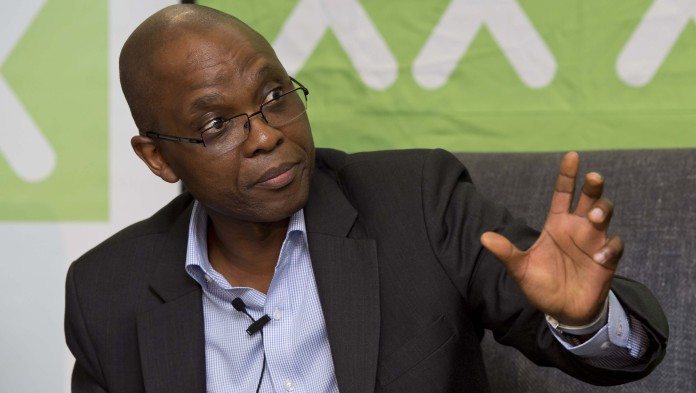
MINERALS Council president, Mxolisi Mgojo, got the Mining Indaba in Cape Town off to a grim start declaring that investor and business confidence in South Africa’s mining sector was declining at “unprecedented levels”.
Speaking at a media briefing, he cited the main reasons for this as being the crisis at Eskom, South Africa’s power utility, which had created insecurity of power supply combined with escalating costs; widespread corruption in state-owned enterprises, in particular Eskom and Transnet; violent organised crime which was increasingly affecting the mining industry, and the need to control public spending.
Mgojo said the gravity of the situation mean that “… the time has come to be more assertive in conveying our position. These are issues that affect not only the mining industry but all levels of business and society”.
A long-standing criticism of the Minerals Council – formerly the Chamber of Mines – is that it has traditionally tried to settle matters with Government ‘behind closed doors’ and out of the public eye and has achieved very little as a result of this passive approach.
The one notable exception was when it took legal action against the totally unacceptable version of the Mining Charter which former mines minister, Mozebenzi Zwane, tried to foist upon the mining industry two years ago.
Asked what precisely the Minerals Council intend doing to be more assertive, Mgojo replied there would be joint action with the rest of South Africa’s business community. This had already started through the interaction with South African president, Cyril Ramaphosa, at the recent Business Unity South Africa (BUSA) business economic indaba held in January.
Minerals Council CEO, Roger Baxter, said South Africa was currently experiencing its longest economic downturn since 1945. He commented: “President Cyril Ramaphosa’s state of the nation address next week needs to assure citizens and local and foreign investors that the severity of the economic crisis is fully recognised and there’s a determination to act with the urgency that it demands.
“Economies do not grow on promises and platitudes. They grow on fixed investment and real productivity growth. Those are the key drivers and the key handbrakes on investment are electricity, rail, ports, crime and policy uncertainty.”
Asked about the specific issue of Eskom’s long-standing opposition to the introduction of private power generation to the country’s power generation grid – because this would reduce its own monopoly over the country’s power supply – Baxter replied: “They are in the dwang and they don’t have any options.
“This has been discussed and the indications we have received from (new Eskom CEO ) Mr de Ruyter are that Eskom is willing to work with industry to allow self-generation. They recognise that we are a key part of the solution.
“The old monopolistic way of looking at the world is changing and, if Eskom is the blockage, we will make it known to you and government that they are the bottleneck.”
Mgojo added that: “I want to believe that matters are being taken seriously, but I think it will also be very important to hold government accountable in terms of making sure that they do act. You may ask how are we going to do that but that is a story for another day.”











